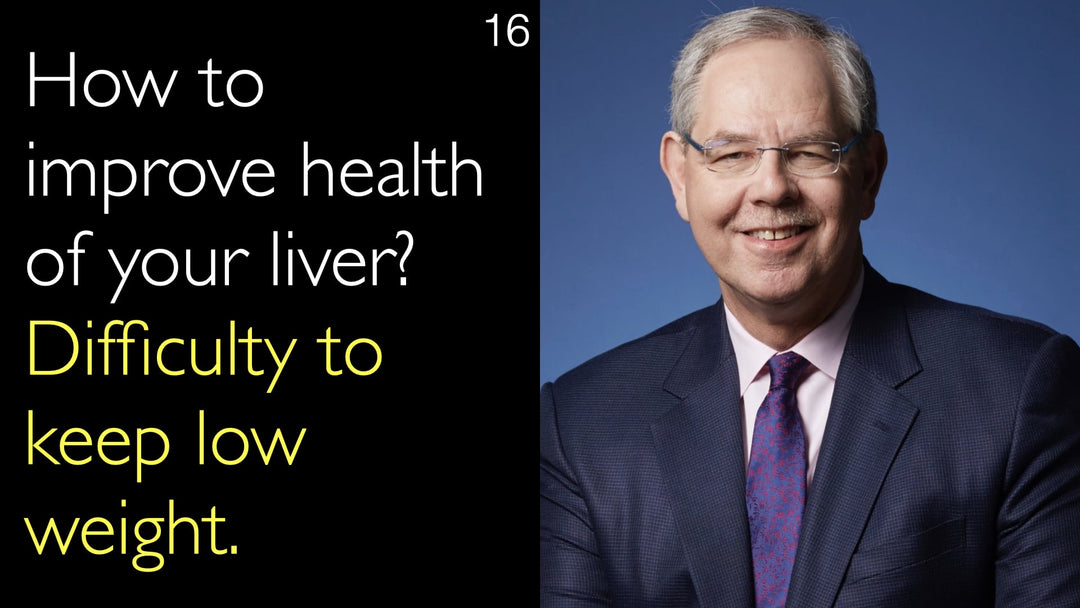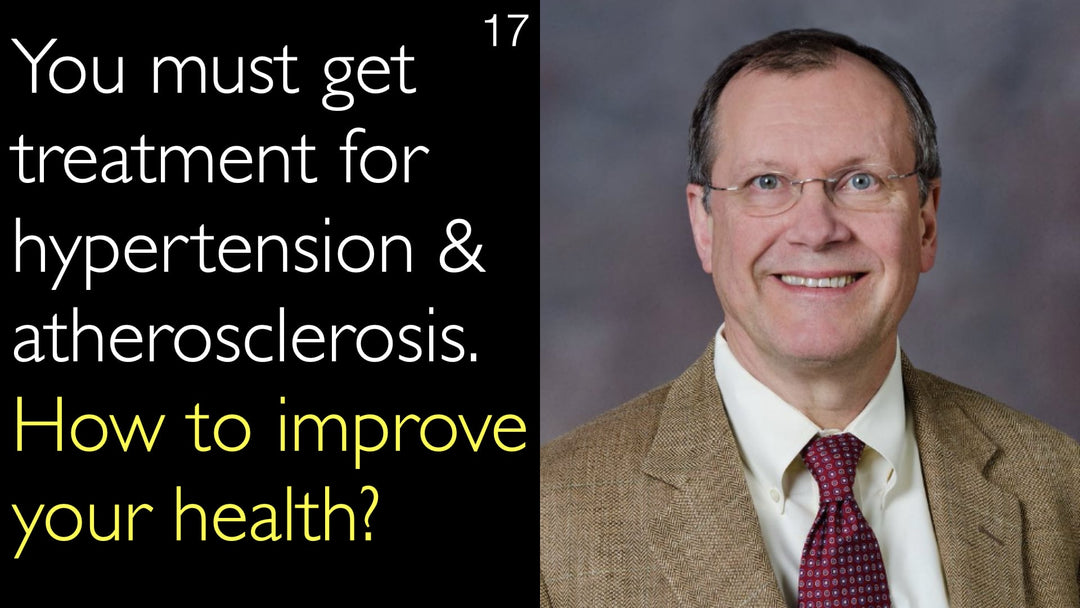Leading expert in vaccine safety and adverse reactions, Dr. Stephen Evans, MD, explains the rapid development of COVID-19 vaccines. He discusses the careful balance between speed and safety in clinical trials. Dr. Evans addresses concerns about potential adverse effects like Guillain-Barré syndrome. He explains why multiple vaccine candidates increase the likelihood of success. Dr. Stephen Evans, MD, emphasizes that even a partially effective vaccine could significantly reduce disease severity and transmission.
COVID-19 Vaccine Development: Safety Protocols, Efficacy Expectations, and Timelines
Jump To Section
- Vaccine Safety Concerns and Historical Lessons
- Development Speed and Safety Considerations
- Efficacy Expectations and Realistic Outcomes
- Population Protection and Herd Immunity
- Elderly Population Efficacy Challenges
- Full Transcript
Vaccine Safety Concerns and Historical Lessons
Dr. Stephen Evans, MD, emphasizes the critical importance of vaccine safety monitoring during COVID-19 vaccine development. He references the 1976 flu vaccine that potentially caused excess cases of Guillain-Barré syndrome, a serious neurological condition that can cause temporary paralysis. Dr. Stephen Evans, MD, explains that most people recover from Guillain-Barré syndrome, though some may experience ongoing weakness. Dr. Stephen Evans, MD, highlights how surveillance systems improved significantly by the 2009 pandemic flu outbreak.
Dr. Evans stresses that initial vaccine deployment only reveals a limited range of potential harms. He emphasizes the necessity of ongoing surveillance programs to detect rare adverse effects that might not appear in clinical trials. This careful monitoring approach ensures that vaccine benefits substantially outweigh any potential risks for the population.
Development Speed and Safety Considerations
Dr. Stephen Evans, MD, acknowledges that COVID-19 vaccine development represents the fastest vaccine development timeline in medical history. Despite this unprecedented speed, he believes the danger of cutting safety corners remains minimal. Vaccine developers understand that releasing a vaccine causing more harm than good would have severe consequences. The rapid development is possible due to technological advances and existing vaccine platforms that can be adapted for SARS-CoV-2.
Dr. Stephen Evans, MD, notes that some aspects of vaccine development cannot be accelerated. adequate follow-up periods of three to six months are essential to ensure lasting effects and detect delayed adverse reactions. The high disease prevalence actually facilitates quicker efficacy determination in clinical trials. Dr. Anton Titov, MD explores these complex safety considerations with the vaccine expert.
Efficacy Expectations and Realistic Outcomes
Dr. Stephen Evans, MD, provides realistic expectations about COVID-19 vaccine efficacy. With over 100 vaccine candidates in development and at least eight in phase one and phase two trials, the probability of finding an effective vaccine appears high. He explains that even a vaccine preventing 50-60% of cases could be considered worthwhile given the enormous global economic impact of COVID-19. Current data shows vaccines are producing expected antibodies that should reduce disease severity.
Dr. Stephen Evans, MD, emphasizes that complete prevention isn't necessary for a vaccine to be valuable. Reduction in disease severity across a sufficient proportion of vaccinated individuals would still provide significant public health benefits. Dr. Evans acknowledges the challenges in determining how long vaccine-induced immunity might last, which remains an important area of ongoing research.
Population Protection and Herd Immunity
Dr. Stephen Evans, MD, discusses how population-level protection works with COVID-19 vaccines. He explains that if sufficient numbers in the population develop immunity to SARS-CoV-2, the virus will stop circulating widely. This herd immunity effect can protect vulnerable individuals who may not respond optimally to vaccination. The concept applies even if a vaccine doesn't provide complete individual protection.
Dr. Stephen Evans, MD, emphasizes that widespread vaccination could break transmission chains within communities. This population protection becomes particularly important for individuals who cannot receive vaccines or who have compromised immune systems. The interview with Dr. Anton Titov, MD explores these community-level benefits of vaccination programs.
Elderly Population Efficacy Challenges
Dr. Stephen Evans, MD, addresses specific concerns about vaccine efficacy in elderly populations. He notes that some vaccines, particularly flu vaccines, show reduced efficacy in very elderly individuals. This presents a particular challenge since elderly populations face the highest risk of severe COVID-19 outcomes. If COVID-19 vaccines demonstrate reduced effectiveness in this vulnerable group, alternative protection strategies become necessary.
Dr. Stephen Evans, MD, explains that even if direct protection in elderly individuals is suboptimal, vaccinating younger populations can still provide indirect protection. By reducing community transmission through vaccination of children, young adults, and middle-aged adults, the overall risk to elderly individuals decreases significantly. This approach requires achieving sufficient vaccination coverage across multiple age groups to effectively reduce viral circulation.
Full Transcript
Dr. Anton Titov, MD: Successful vaccines for COVID-19 coronavirus is what everybody hopes for. And you're an expert in assessing vaccines, and especially vaccine safety, adverse reactions and nonspecific effects of vaccines. What do you think of their vaccine efforts against COVID-19? How likely are vaccine efforts to be successful? Will speed of development cut corners on safety? And some say that an effective vaccine against COVID-19 will never be found. What do you think of that?
Dr. Stephen Evans, MD: When it comes to vaccines, we have to be not only careful in ensuring that we trial people sufficiently, but when we first introduce the vaccine, we've got to be really careful in making sure that adverse effects are not slipping under the radar. We're good enough at detecting them and that we have surveillance for them.
For example, back in 1976, when there was a major flu epidemic in the US, the vaccine that many people had possibly caused some excess of a rather nasty disease called Guillain-Barré syndrome, in which people can effectively become paralyzed. They usually recover from this after a while, but sometimes their recovery means that they've got an ongoing weakness, and not everyone recovers, but people usually do.
In particular, when we had the pandemic flu in 2009, we were very concerned that when the vaccines for that flu were being given to very large numbers, there were no extra cases of Guillain-Barré syndrome, and certainly in Europe. I believe in the rest of the world, there was very careful surveillance to ensure that we were not having cases of Guillain-Barré syndrome that we had seen with a previous flu vaccine.
Our problem is that we want to get vaccines to prevent disease, but we need to study large numbers. And when we first put a vaccine out into the population as a whole, we only know for certain a limited range of the possible harms that it can cause, and so we need to carry out surveillance. And we have to be aware that sometimes we'll be caught out.
I think that the speed of development of vaccines for COVID-19 is faster than we've done for any other disease ever. The energy and effort and the thought and the clever approaches that have gone into finding vaccines for these, and the speed with which they've been done, might lead us to be worried about cutting corners on safety.
There is a danger that this can happen, but I think it is minimal danger. Those who develop vaccines are very conscious that if they put a vaccine out that causes more harm than good, they will be in big trouble. And so they are cautious.
The speed with which we're doing it is partly because our technology has advanced and we have techniques of getting vaccines ready, piggybacking on the previous knowledge we have, being able to slot a new little bit of a virus into an existing vaccine. As a consequence, we can actually get the vaccine ready to be tested quicker.
There's a lot of the disease about, so in principle, we can find what is likely to be effective. But there are some elements of this that just can't have a shortcut. We have to study people. We can't say within a week the outcome will be up one month or six months.
So we may need three months or six months follow-up to be sure that the effects we're seeing are either lasting, or we're not seeing adverse effects that only appear after one or two or three months. So some things can't have a shortcut.
I have slight concerns that we're all in such a hurry and the pressures are great to get a vaccine. But I don't think that I have major concerns.
It's possible an effective vaccine may not be found. We have over 100 vaccines being tested. Eight of them, at least, are in phase one, phase two trials at the moment. And I think it's quite likely that we will find a vaccine.
We do not know how efficacious it will be, but it may not prevent even 90% of diseases. But if it prevents 80 or 70, or even 60%, maybe even 50% of cases, it might be regarded as worthwhile. The economic costs to the whole world are enormous from this disease.
And so having a vaccine that even prevents some of the disease will be worthwhile, but we have no guarantee that we will find one. But our basic knowledge and already the data that we have shown that the vaccines are producing antibodies that we would expect result in reducing at least the severity of the disease, if not preventing it totally.
Nobody can say a vaccine will never be found. We have good evidence that it is difficult. It is difficult to produce the antibodies, and it is not certain how long the effectiveness will last.
The possibility that the vaccine does not prevent all the disease does not necessarily mean a vaccine will be no good. If it reduces the severity of disease in a sufficiently large proportion of the people who get the vaccine, then that will be useful.
We can't guarantee we'll find such a vaccine without having unwanted adverse effects that are too great. But all our expectation is, or not simply our optimism, but all our expectation is that we will find a vaccine among the many possibilities that are being trialed.
A major problem, of course, would be that for some vaccines, notably some flu vaccines, their efficacy is reduced in the very elderly. And if we found that the vaccine against COVID-19 had reduced efficacy in the very elderly, they are the people who are most affected by COVID-19. And so the vaccine would not have as much utility.
However, again, if we found a vaccine that was very effective and worked in children and in young adults and middle-aged adults, and you could prevent the disease circulating in them, that would end up protecting elderly people who are not being protected by the vaccine itself.
If sufficient numbers in the population are immune to SARS-CoV-2, then we will find that it is no longer circulating; and we protect the health of those who are most at risk.







